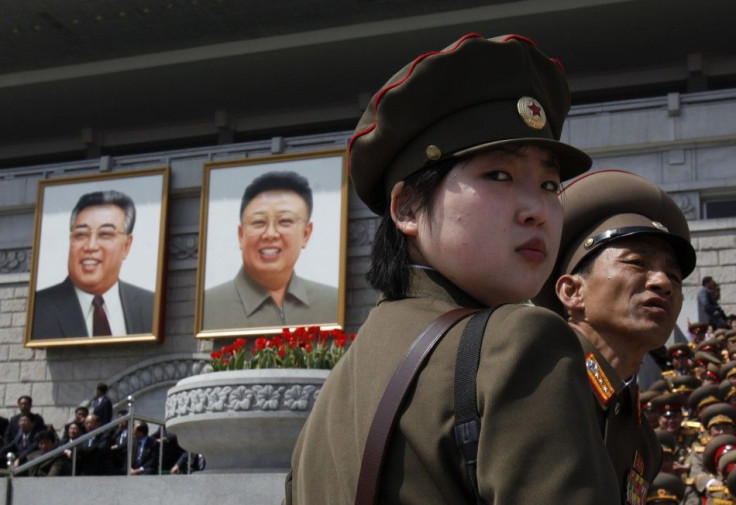North Korea Ranks People Based On Loyalty To Kim Dynasty: Study

North Korea profiles its citizens based on their families' loyalty to the ruling Kim dynasty. Fealty to the ruling regime plays a crucial role in deciding citizens' education, job, healthcare, food security, and even a partner in marriage, says a study carried out by a US-based human rights group.
All adults in North Korea are ranked as belonging to one of the three categories - loyal, wavering or hostile, says the study, Marked For Life, released Wednesday by the Committee for Human Rights in North Korea.
The practice, akin to a political caste system, has persisted over the years ever since the Kim dynasty gained power 64 years ago.
Throughout its 64-year existence, the Kim regime has claimed that North Korea is an egalitarian workers' paradise, committee's executive director Greg Scarlatoiu was quoted as saying by the Associated Press. Yet, inequality is assigned at birth, perpetuated throughout a person's lifetime and cruelly enforced by those in power to benefit themselves and their supporters.
In an interview, Scarlatoiu has said regime loyalists are given preference when it comes to access to food, housing and employment and are welcome to live in the capital Pyongyang.
However, families classified as hostile are forced to live in the poverty-ridden northeastern provinces, earning a living from hard labor at mines and farms.
However, Pyongyang has denied the existence of such a ranking system.
The study says the classification of hostile may take at least three generations to be reclassified again.
The report, based on a series of interviews with 75 North Korean defectors, says the government maintains files on North Koreans who are over 17 years of age and updates it every two years.
The study also cites a 1993 manual issued by North Korea's Ministry of Public Security to guide its officials on how to investigate a citizen's socio-political classification, or songbun, meaning ingredients in Korean.
Younger generations accord lesser importance to songbun while older people think it as important as it decided the course their lives had taken.
People find it hard to win the approval of the government to get into the category of loyalists if they have already been classified as hostile or wavering.
Classified loyalists have historically fought for the Kim dynasty against Japanese colonialists and against U.S.-backed forces in the Korean war of 1950s. Those classified hostile include descendents of people who extended support to the foreign forces or who fled the country during the crisis.
About 24 million loyalists constitute about 25 percent of the population and dominate high ranks in military and politics. Marrying a hostile is considered detrimental to social ranking, as this can strip people of the loyalist classification.
© Copyright IBTimes 2024. All rights reserved.





















